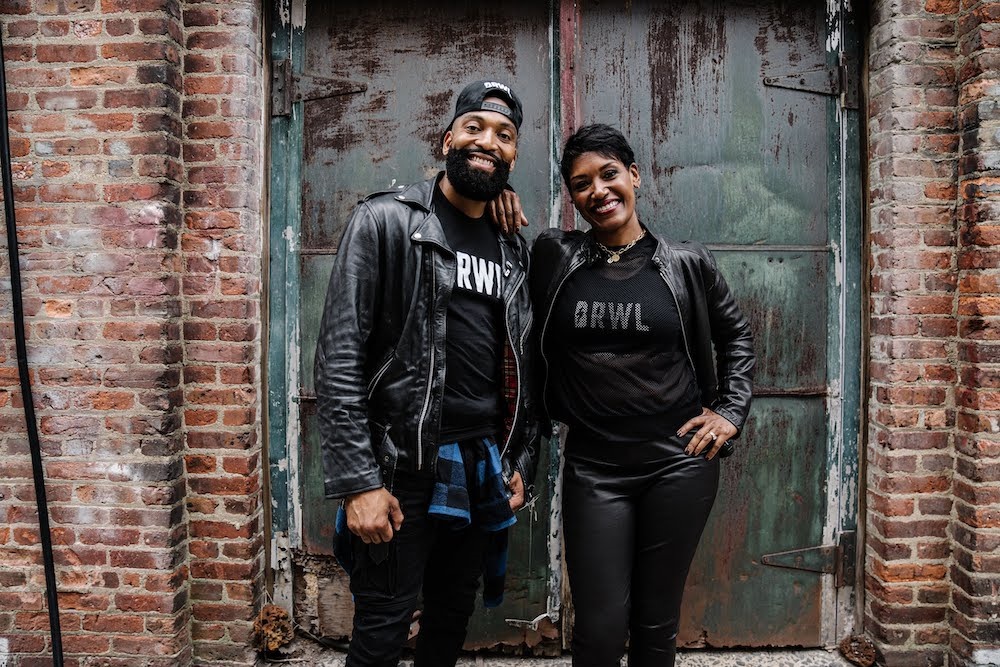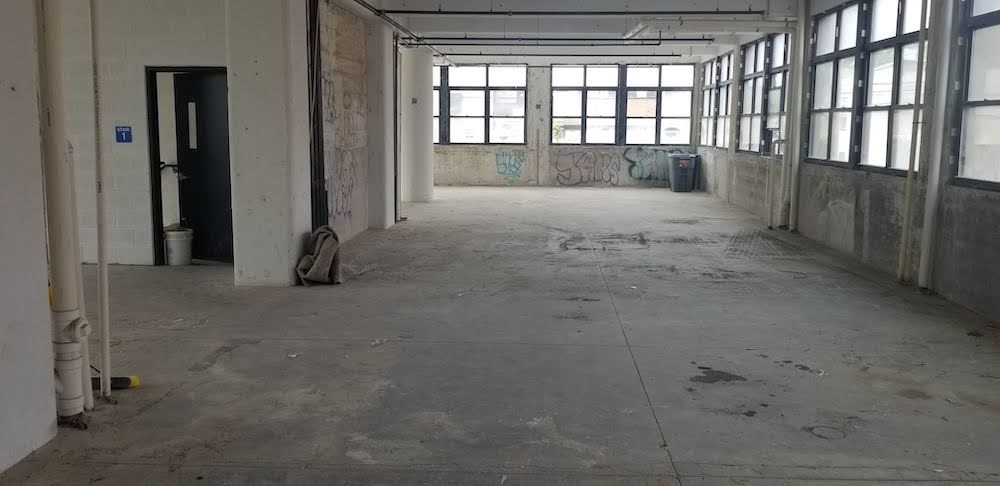When Michelle Swittenberg began looking for a place to locate BRWL, her boxing and yoga studio, she wanted to settle in Orange, New Jersey. She'd found that most of the studios were located in more of the higher income areas, like Milburn or Short Hills, when working out on her own. "It was important for me to get people to come to Orange," she says. "This keeps money in the neighborhood and hopefully attracts money to the neighborhood, too."

"We realized that to drive substantive economic growth, we needed to facilitate more small business activity in our communities," said Andrew Regenstreich, director of real estate and economic development. "We wanted to stack the deck toward small businesses by reorienting our portfolio toward small businesses. We did that by offering more affordable rent and flexible space and finding dynamic small businesses that were poised for growth. The thought was that they, in turn, would thrust the community forward."
Swittenberg purchased the last commercial space in Hat City Lofts, a 100-year-old hat factory HANDS had redeveloped as a residential and commercial space. As she was waiting for the space to be finished, she rented space from HANDS in a redeveloped factory next door. Then, the pandemic hit.

The fledgling studio had been experimenting with live streaming, so they continued that, running classes for locals and out-of-staters. But they were spread thin financially, trying to make sure their trainers didn't have to be laid off. "Hands was able to forgive two months of rent," she says. "We put it back into the pockets of our trainers."
In recent months, HANDS was able to bring a physical therapist, a cannabis-based health and wellness brand, an architect, a design agency, and more to the redeveloped factory. It is good to welcome so many women and minority business owners to this space, Regenstreich says. The program has gone so well, they decided to go deeper, using a Neighborhood Revitalization Tax Credit, along with a $20,000 grant from NeighborWorks America and partnering with Rising Tide Capital, which offers training and support for small businesses.
The idea is to not only help businesses start but help them grow and navigate their first years. "It plays into a larger strategy we think will be unique in the community development field," Regenstreich says. "It's a 360-degree, 'we-want-to-make-sure-you succeed,' sort of approach."
Felicia Stokes, owner of Luxurious Wellniss (spelled with an "i" becuase "we put the bliss in 'wellniss'"), took over the temporary rental space when Swittenberg moved to her permanent space. A licensed esthetician, she sells skincare products and plans to offer skin therapy and treatments. Like Wittenberg, she built her business online during the pandemic.

Affordable rent made the biggest difference for her. "When you're working, the majority of your paycheck often goes toward your rent. When you have a brick-and-mortar store, it's the same." The lower rent will allow her to expand her business. It's currently a two-person operation ("two people working a lot of overtime"). Still, she hopes, once doors open, to hire more staff. And she knows that HANDS will continue to help her grow.
"I'm proud of our small business effort," Regenstreich says. "It's really making an impact." The proof? "The businesses are growing."

